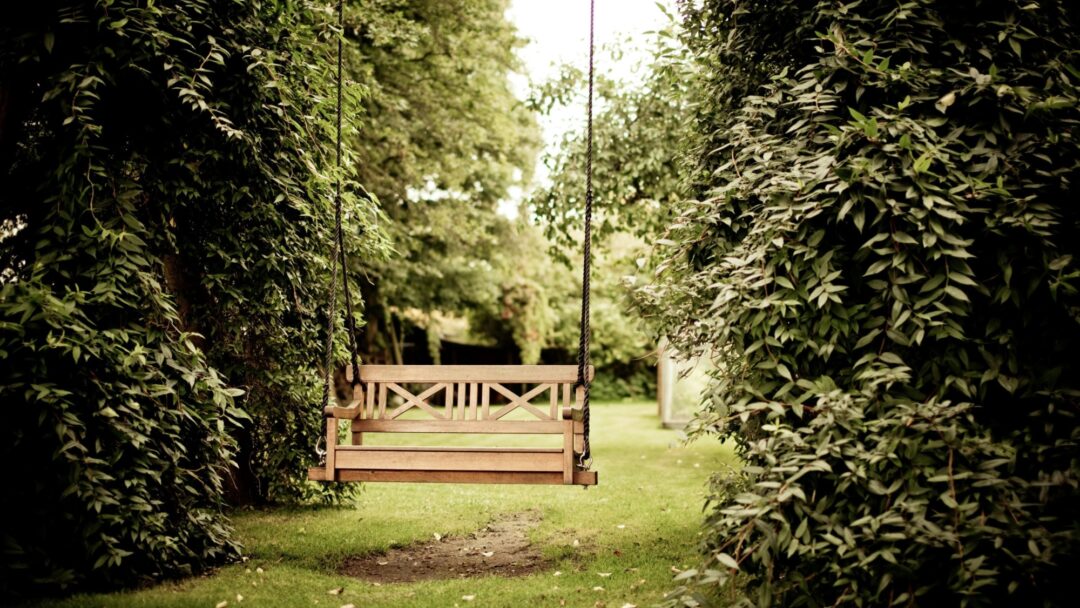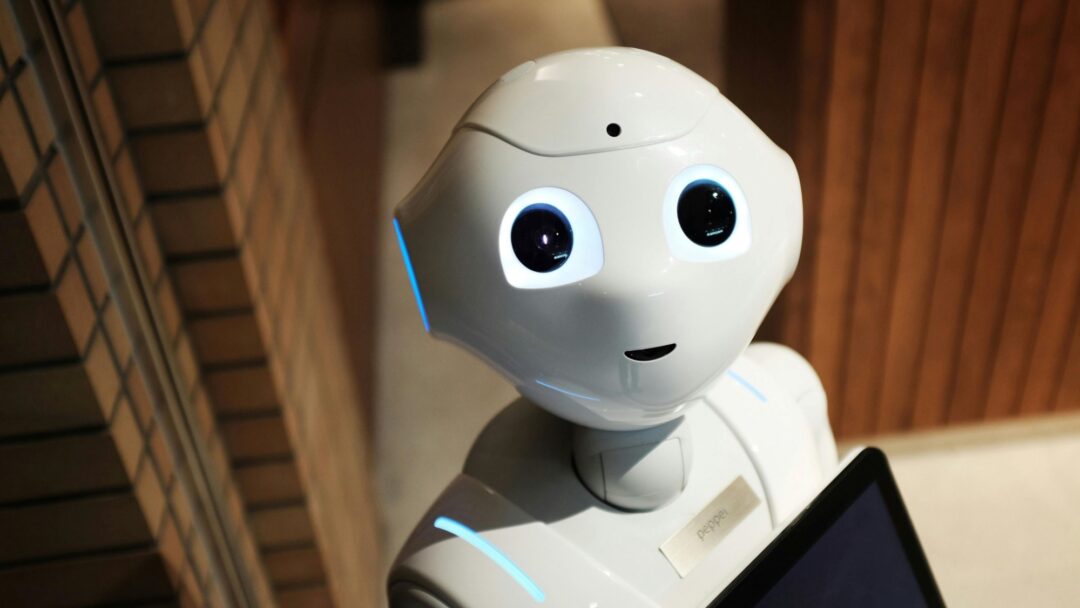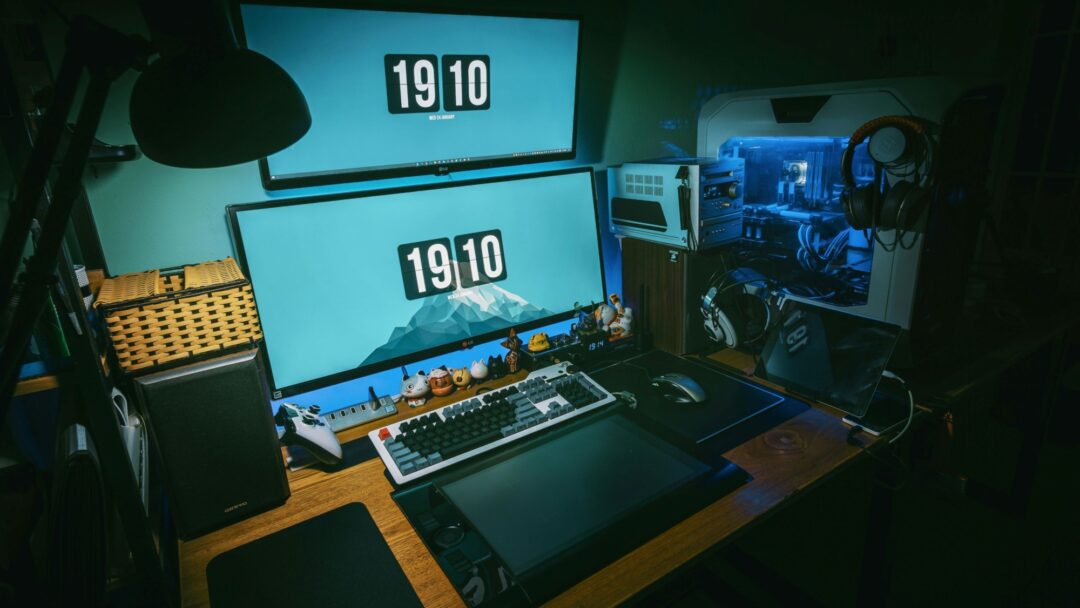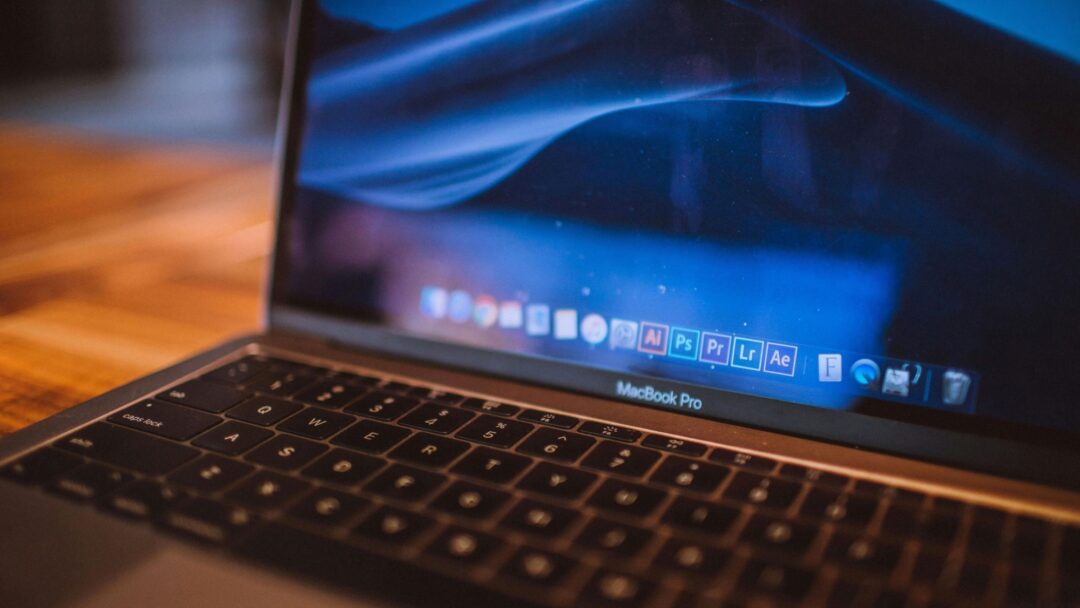Audio
Jess Wilson: Be Connected
Ablequest by
2RPH3 seasons
26 July 2024
14 mins
Information about a program teaching good cyber-security practices to make daily life safer.

Ablequest is a series of 15 minute programs from Radio 2RPH Sydney. The programs examine developments in assistive technology and initiatives for people living with a wide range of disabilities. Presented by Barbara Sullivan, Marni Roper and Elaine Wziontek.
In this episode: Be Connected is a program which steps learners through cyber security basics through easy to understand courses on topics such as online banking, shopping and connecting with others.
Elaine Wziontek spoke to Jess Wilson, CEO of Good Things Foundation Australia, about the program which gives older Australians confidence to feel connected and really make the most of technology.
Speaker 1 00:04
With information on the latest developments in assistive technology and initiatives, from the studios of 2RPH in Sydney, RPH Australia brings you Ablequest. Hello, I'm Barbara Sullivan. Just as we all need to learn how to read and write, it's becoming more and more important for everyone to have skills to use digital and AI technologies. Understanding this technology is essential to navigate information, organise travel and entertainment, access government services like Centrelink, and even more importantly, stay in touch with friends and family. Yet currently, nearly one in four Australians lack the essential digital skills or affordable access to digital services to fully take part in today's society. And women, people over 50, people with a disability, refugees and migrants are more likely to have problems understanding the digital world.
Be Connected is a federal government-sponsored program which steps learners through cyber safety fundamentals through easy-to-understand courses on topics like online banking, shopping and connecting with others online. Our guest today is Jess Wilson, CEO of Good Things Foundation Australia, who believes that the strength of the Be Connected program is that it gives older Australians both the confidence and capacity to feel connected and really make the most of technology. Jess spoke to Elaine Wziontek about the program and how it can support older Australians to be connected confidently and safely.
Speaker 2 01:46
Jess, can you tell me about the Be Connected program and how Good Things Australia is involved?
Speaker 3 01:54
The Be Connected program is a program that's funded by the federal government and it's aimed at supporting older Australians, so that's people over 50, to learn how to be confident and safe online. And we work in partnership with our colleagues at the eSafety Commissioner and the Department of Social Services and Good Things Foundation's role is really to build and support a network of community organisations who help people in their local community to learn how to use technology and how to stay safe online.
Speaker 2 02:24
So do you think older Australians are being left behind without digital online skills and are some of them scared of the technology?
Speaker 3 02:32
What we know actually is that one in four people in Australia are digitally excluded and what that means is that they don't have the skills and confidence or the access to affordable technology that they need to fully participate and there are different groups of people who are more likely to be digitally excluded and to lack confidence in using technology and definitely older people are one of those groups. We also definitely know that one of the key reasons that people are not wanting to go online or to rejecting the idea that they should use technology in their lives is because of fear. You know there are so many stories out there about people who have been scammed and so they're like, Well if I just stay off the technology then I won't need to worry about that.
Also people are kind of worried about breaking things you know like if you haven't used a piece of technology before it's quite daunting because it's like learning a new language it's a new way of doing things and so people are often a bit scared about whether they're going to break the computers.
Speaker 2 03:35
I think I used to be like that when I first used it. I thought I'd press a button and it might explode.
Speaker 3 03:41
Absolutely, and I think when we're all learning something, it's a bit scary and we often need that kind of local support or somebody sitting with us to say it's okay, we can work this out together and really that's the whole point is to be connected program and the network of community organisations we have across the country, we have about three and a half thousand of them and in those organisations they have local people who are just like the people that are learning who are there to support people to learn and to not necessarily be tech experts but actually to help them guide them through the steps they need to take to start to feel more confident.
Speaker 2 04:19
So if you've got somebody by your side, you'll just get more confident and you won't feel stupid if you make a mistake.
Speaker 3 04:24
I have other people in my life that I ask for tech support all the time - and I'm like, I don't know how to do this new thing on my phone because it got updated overnight and now I don't know how to use it. So that's the whole idea of Be Connected is that we have what we call digital mentors so people in the community that can help people to feel more confident and can get over their fear to have a go and to know that you're learning something new...
Speaker 2 04:50
So the programs, are they tailored for different groups?
Speaker 3 04:55
Yeah, I mean, I think that's the real benefit of having our network approach. So the network of community organisations we have are really diverse. So there are libraries, there are community centres, there are aged care retirement villages, there are CWAs or disability support organisations. So a whole range of different types of organisations where people already are. And so they already know the people in their community and what's important to them. So they can really tailor the program to the people that they're supporting. So that's the brilliant piece of this. But the thing is that works so well in this program is that we also, through our partnership with the eSafety Commissioner, have fantastic online learning content.
So the people in community don't have to know all of the detail about how to teach people about scams, because we've got some fantastic content that they can use to support them to do that. So eSafety Commissioner content on the Be Connected website is fantastic. And every time I go on there, I learn something new myself. So I highly recommend that people have a look at that. So they've got this fantastic, high quality learning content, but they have local support in a place that's friendly and welcoming and that they already know people. So that's the real benefit of the program.
Speaker 2 06:12
And do people learn online, or do they learn face-to-face?
Speaker 3 06:16
Different people learn different ways, and so we definitely have people that feel a little bit more confident already and wanting to learn some more that can go on to the Be Connected website and can learn online just by going through the modules that are on there. There's also podcasts and tip sheets and a whole lot of other things. If you're not really feeling confident in technology, then going and learning online is going to be difficult. So it's really important and a really key part of this program is to have that local support where people can learn one-on-one or they can learn in small groups.
Sometimes there's big groups of people that come together - and definitely I think one of the key parts of this is that our digital mentors, sometimes if you're speaking a different language as well, we have bilingual digital mentors that are able to support people to translate the information, not just in terms of language but actually in terms of cultural context as well.
Speaker 2 07:07
Can you give any examples of that?
Speaker 3
Yeah. So we've got some great organisations down in Melbourne, for example, who's working to support the Indian community. They have bilingual mentors that give the lessons in the language of the people that are visiting and can help to translate the information about what's going on. We also have a new program that we've been delivering called Digital Sisters, which is supporting refugee and migrant women. And we've had 20 different organisations across the country that have been supporting people to learn. And those bilingual mentors have gone through a whole lot of different things that people want to learn about and really looking at how do we do this in a culturally safe way to make sure that they feel confident to use the technology but also can translate the information.
So when you're coming to a new country, the systems and the places, the approaches that we have here are different from where people come from. So it may not just be about the language but also about, well, you might need to know about MyGov, which people who have come from a different country may not know about. So it's really about understanding what the context is and what kind of tools we use here in Australia, as well as how to use the technology.
Speaker 2 08:20
Well, some of those programs, like MyGov, are quite difficult to navigate, aren't they? Some of those government programs, even if you can use technology.
Speaker 3 08:28
That's absolutely right. and we keep advocating for making sure that those systems - particularly government systems - are designed for use for people that may not be as confident using technology, because we know actually that a lot of people that do access government support services are more likely to be people who are not as confident using technology anyway. So not only do governments need to make sure that people are learning how to use the technology but that their systems are really easy to use. There's still a way to go with that one I would say.
Speaker 2 09:01
Do they want to learn about how to do banking or how to pick up scams or all the kinds of things that people want to learn?
Speaker 3 09:08
The number one thing that people want to learn through the Be Connected program is how to stay safe online is what I would say. So that's absolutely number one. People are most concerned about, Well, what do I need to do to make sure that I'm not scammed or to make sure that my information is not taken from me?
Speaker 2 09:25
Mm-hmm.
Speaker 3 09:25
So I think that's definitely a key part of the program, supporting people to know when you're using different pieces of technology or different websites or different tools, how do you make sure that you're staying safe doing that? But the other key thing that people want to know more about is also about how to connect with other people. How do I use those tools that help me connect with my family overseas? How do I understand how to use Skype or Facebook or social media? There are different things that will help connect people to other people. So that's not surprising.
And I think the third thing really is around how to use those kinds of different government services or transactional services, as we call them. So it might be my gov or it might be banking. Those different things that actually help us to do something online to be able to to do the things that we will usually do face to face. I would say that the ability for people to connect with one another while we were in COVID and people weren't able to connect face to face as much. It's really important for people to be able to use that technology to stay connected to the people they love. So it's brilliant that this program not only improves people's digital skills, but does actually build that social connection for people.
Speaker 2 10:41
Well, I'm a grandma, and I'd love to see the photos of grandchildren in little videos and even making little videos so they can talk to you or they can see you when they're in the mood for it.
Speaker 3 10:52
Absolutely. And you know, we had an experience with one of the people that we're one of our partners supported, who had a phone and had all of these photos of her grandkids that she didn't see because they weren't living close to her. And she just did not know how to open the photos on her phone. And so the ability for someone to go to a partner and for that very simple thing to be helped to open a photo on your phone meant so much more than just that skill of learning to open a photo. It was actually about being connected to the people that she loved. So I think sometimes people take for granted that some of those simple things that people don't know. And it's really important for everyone to have the opportunity to understand how this technology can benefit their lives. It's not just about technology, it's about what you do with it.
Speaker 2 11:47
So where do you see the potential of AI in all of this?
Speaker 3 11:50
Haha, well we've been doing quite a lot of work around AI and trying to understand what AI is and what does AI literacy mean... and really it's such a debated topic, like there's so many people have slightly different definitions and can see both benefits and risks. But like, I'm an optimist, and I definitely see that there are opportunities for AI to overcome some of the barriers that people experience. So for example using translation tools. There are some fantastic translation tools out there - including just Google Translate on Google websites - really easily, so that the issue of English literacy becomes less of a barrier for people to participate in our society.
So I think that in itself is fantastic, and also you know, some people with disabilities for example, voice-to-text has really supported people to be able to engage with different types of technology and be able to engage with different services and access jobs and all of those kinds of things. So I think there's a real benefit to the use of AI technology, and I think also at the same time people are really not sure what this new thing is - and it's another new tool and another new piece of technology that we need to make sure everybody knows how to use. So we're still in really early days of, I think, how this... technology is going to be used. But you know we need to make sure people have the basics first, and that's really where be careful.
Speaker 2 13:25
And Jess, can you give me the website and phone number so that our listeners can find out more?
Speaker 3 13:33
You can go to the Be Connected website which is beconnectors.esafety.gov.au and find information there, a whole lot of content that I said before. But if you don't feel that confident and you're not really sure how to start, then we have a number that you can call, which is 1300 795 897 - and one of our team will help you find a community partner that's close to you where you could go and learn from.
Speaker 2 13:58
And that was Jess Wilson, CEO of Good Things Foundation Australia. She was talking about the Be Connected program and how it gives people confidence and skills and how people can benefit from the emergence of AI and technology.
Speaker 1 14:19
You have just been listening to AbleQuest, a program that looks at developments in assistive technology and initiatives. From Elaine Wziontek and Barbara Sullivan, thank you for listening, and goodbye till next program.
Continue listening

Blind Sports Australia CEO Matt Clayton speaks about its work with blind and vision impaired athletes across 21 sports.
Matt Clayton - Blind Sports Australia
Ablequest by 2RPH
5/5/2023
•13 mins
Audio

Vivid, Sydney's celebration of creativity, seen from a disability access focus by its director.
Gill Minervini - Vivid
Ablequest by 2RPH
19/5/2023
•14 mins
Audio

This program discusses dance movement therapy and how it works - featuring Cecilia King of the Dance Therapy Association.
Cecilia King - Dance Therapy
Ablequest by 2RPH
14 mins
Audio

What are the challenges of providing audio description on Oz TV? Hear Lauren Henley, Aust Federation of Disability Organisations.
Lauren Henley - Audio Description
Ablequest by 2RPH
16/6/2023
•14 mins
Audio

In Part 1 of a 2RPH interview, assistive tech expert David Woodbridge explores latest innovations to make everyday life easier.
David Woodbridge - Tech Update Part 1
Ablequest by 2RPH
30/6/2023
•14 mins
Audio

Features Robert Duff-Silsby of Luddi, Perth company developing assistive devices for all people and bodies.
Robert Duff-Silsby - Sexual Wellbeing
Ablequest by 2RPH
13 mins
Audio

In Part 2 of this conversation with 2RPH's Ablequest, expert David Woodbridge reviews latest assistive technologies.
David Woodbridge - Tech Update Part 2
Ablequest by 2RPH
28/7/2023
•14 mins
Audio

Matt Clayton of Blind Sports Australia and the Oz team's Chef de Mission, discusses the forthcoming World Blind Games in the UK.
Matt Clayton - World Blind Games
Ablequest by 2RPH
11/8/2023
•13 mins
Audio

Prof Kim Marriott of the Monash Assistive Technology and Society Centre, talks about the purpose and work of the Centre.
Kim Marriott - Monash Assistive Technology and Society Centre
Ablequest by 2RPH
25/8/2023
•13 mins
Audio

Ablequest features an interview with Serena Ovens, new CEO of Assistive Technology Supplies Australia or "ATSA".
Serena Ovens - Assistive Technology Supplies Australia
Ablequest by 2RPH
14 mins
Audio

Part 1 of an interview on the voice-activated app, Bindi Maps.
Anna Wright - Bindi Maps (Part 1)
Ablequest by 2RPH
14 mins
Audio

This is Part 2 of an interview with Dr Anna Wright, explaining how Bindi Maps works.
Anna Wright - Bindi Maps (Part 2)
Ablequest by 2RPH
14 mins
Audio

Artist Ebony Wightman of disability-led We Are Studios talks about art and challenge.
Ebony Wightman - We Are Studios
Ablequest by 2RPH
20/10/2023
•13 mins
Audio

Prof. Leeanne Carey discusses the SENSe program, her team's world-first therapy to help stroke survivors.
Leeanne Carey - SENSe Therapy
Ablequest by 2RPH
2/11/2023
•13 mins
Audio

Youthworks Accessibility Minister Bec Baines talks of making church accessible to young people with disabilities.
Bec Baines - Youth and Worship
Ablequest by 2RPH
16/11/2023
•14 mins
Audio

Nikki Hind, Australia's first blind fashion designer, discusses her work.
Nikki Hind: Blind Grit
Ablequest by 2RPH
1 December 2023
•14 mins
Audio

Dr Dimity Williams, family GP, recommends spending more time in nature - and a "green hour" each day.
Green Hour: Dr Dimity Williams
Ablequest by 2RPH
5 December 2023
•14 mins
Audio

Imagine sitting in a wheelchair for hours, being unable to move your fingers or arm to do simple things like pick up a glass.
Konstanze Hager - Bateo
Ablequest by 2RPH
Konstanze Hager - Bateo
•14 mins
Audio

Action Audio is a new language being created to transcend sport.
Machar Reid - Action Audio
Ablequest by 2RPH
Machar Reid - Action Audio
•14 mins
Audio

What a difference one person with experience, passion and energy can make to many lives.
Julie Ross-Edwards - Head High
Ablequest by 2RPH
Julie Ross-Edwards - Head High
•14 mins
Audio

Driver educator outlines what's needed for a person with disability to get a driver's licence.
Ronak Shah: on-road driving education
Ablequest by 2RPH
12 January 2024
•14 mins
Audio

Vision Australia's Christo Sarantakis talks of his life, blindness and assistive tech changes.
Christo Sarantakis of Vision Australia
Ablequest by 2RPH
26 January 2024
•14 mins
Audio

Introducing Australia's first pictureless feature film, TOUCH, showing in Sydney.
Majella Knobel: "Touch" - open air movie
Ablequest by 2RPH
9 February 2024
•14 mins
Audio

An expert discusses the use of horticultural therapy for people with disabilities.
Steven Wells: horticultural therapy
Ablequest by 2RPH
23 February 2024
•14 mins
Audio

Features articles on latest blind-assistive tech including a new bus app and smart ear buds.
Assistive tech news catchup
Ablequest by 2RPH
8 March 2024
•14 mins
Audio

Features an innovative hospitality industry training program for people with disabilities.
Saraya O'Connell - Hotel Etico Independence Program
Ablequest by 2RPH
22 March 2024
•14 mins
Audio

Guests discuss the Obi robotic dining assistant for people with upper arm disabilities.
Hugh Kingley and Rachel Dekkar: Obi
Ablequest by 2RPH
19 April 2024
•14 mins
Audio

A spy-themed computer program tackles the mystery of social encounters - outlined by its company's CEO.
Kathleen Davey - Social Science Translated
Ablequest by 2RPH
3 May 2024
•14 mins
Audio

A Sydney organisation delivers creative arts and life skills to people with disabilities.
ChoppA Green - Studio Artes
Ablequest by 2RPH
17 May 2024
•14 mins
Audio

An award-winning Central Coast NSW disability service shares its successful strategies.
Lonestar Makoni - Breaking Barriers Disability Services
Ablequest by 2RPH
31 May 2024
•14 mins
Audio

Part 1 of a conversation with an Australian neuroscience research pioneer about benefits of music in brain injury recovery.
Professor Sarah Wilson (part 1)
Ablequest by 2RPH
14 June 2024
•14 mins
Audio

Part 2 of a conversation with a leading neuroscientist of benefits of music in brain injury recovery.
Professor Sarah Wilson (part 2)
Ablequest by 2RPH
28 June 2024
•14 mins
Audio

A CEO talks about his company's award-winning assistive physical therapy device.
Justin Keenan - LusioMate
Ablequest by 2RPH
12 July 2024
•14 mins
Audio

Information about a program teaching good cyber-security practices to make daily life safer.
Jess Wilson: Be Connected
Ablequest by 2RPH
26 July 2024
•14 mins
Audio

A veteran print disability broadcaster with macular degeneration shares her experiences.
Teresa Plane - 2RPH
Ablequest by 2RPH
9 August 2024
•14 mins
Audio

The founder of a blind-assistive technology company shares latest developments.
Peter Ford - Control Bionics (part 1)
Ablequest by 2RPH
6 September 2024
•14 mins
Audio

Part 2 of an interview with the head of an innovative blind-assistive technology company.
Peter Ford - Control Bionics (part 2)
Ablequest by 2RPH
20 September 2024
•13 mins
Audio

Looks at a project to better inform refugee and migrant women on AI.
Good Things - Jess Wilson
Ablequest by 2RPH
4 October 2024
•14 mins
Audio

An expert with lived experience corrects some widespread misconceptions about stuttering.
Dale Williams - Stuttering Awareness Day
Ablequest by 2RPH
18 October 2024
•14 mins
Audio

An inventor discusses his an innovative cane tip to help people with blindness or low vision.
Peter Rickards - Sensaball
Ablequest by 2RPH
15 November 2024
•13 mins
Audio

Part 1 of an interview with an Australian expert on low-vision-assistive technology, on AI and other developments.
David Woodbridge (part 1)
Ablequest by 2RPH
29/11/2024
•14 mins
Audio

Conclusion of an interview with a leading Australian expert on blind-assistive technology.
David Woodbridge (part 2)
Ablequest by 2RPH
13 December 2024
•14 mins
Audio

Looks at the leading stroke treatment work of the Royal Rehabilitation Hospital, Ryde NSW.
Jason Redhead and Graham Cooper of Royal Rehab Ryde
Ablequest by 2RPH
10 January 2025
•14 mins
Audio

An innovative social media platform aims to address isolation and loneliness in the disability community.
Steve Bear - Alvie
Ablequest by 2RPH
7 February 2025
•12 mins
Audio

Australia's largest provider of Auslan sign services outlines its important work.
Brett Casey - Deaf Connect
Ablequest by 2RPH
21 February 2025
•14 mins
Audio

Looks at an Australian organisation's work at helping men seek help and build self-awareness.
Tommy Herschell - Find Ya Feet
Ablequest by 2RPH
7 March 2025
•14 mins
Audio

A speech pathoplogist discusses her work with young people's complex communication needs.
Denise West - Scope
Ablequest by 2RPH
21 March 2025
•14 mins
Audio

A vision-impaired disability rights advocate talks of her work and learning podcast skills.
Freya Wolf
Ablequest by 2RPH
4 April 2025
•14 mins
Audio

A leading Australian eye researcher talks of his team's work in creating new hope for people with retinal damage.
Raymond Wong - Centre for Eye Research Australia
Ablequest by 2RPH
18 April 2025
•14 mins
Audio

A wheelchair-using business owner, facilitator and car rally driver shares experiences and insights.
Mel Harrison - Sitting Low, Reaching High
Ablequest by 2RPH
2 May 2025
•13 mins
Audio

Disability Pride Month in July promotes awareness about people with disability and also celebrates individuals with disability.
Hannah Solomons - Sydney Disability Pride
Ablequest by 2RPH
Hannah Solomons - Sydney Disability Pride
•14 mins
Audio

Deb Roach is a three-time pole dancing world champion yet she has only one arm.
Deb Roach
Ablequest by 2RPH
Deb Roach
•13 mins
Audio

Being in nature is good for you whether it is being in the garden or walking along the beach.
Kayte Kitchen - Admirari Nature Therapy
Ablequest by 2RPH
Kayte Kitchen - Admirari Nature Therapy
•14 mins
Audio

Music can evoke emotions that bring back memories and the same is true for people living with dementia.
Zara Thompson - Music Therapy
Ablequest by 2RPH
Zara Thompson - Music Therapy
•14 mins
Audio

Laura Boccanfuso is founder and CEO of Van Robotics, a social robotics company based in South Carolina in the United States.
Laura Boccanfuso - Van Robotics
Ablequest by 2RPH
Laura Boccanfuso - Van Robotics
•14 mins
Audio

Two years ago Maggie O'Connell, in her mid 20's never had a full time job.
Maggie O'Connell - AFP
Ablequest by 2RPH
Maggie O'Connell - AFP
•14 mins
Audio

Julie Ross-Edwards, founder of Head High Disability Services, returns to Ablequest to speak more about Head High's philosophy and special approach.
Head High (Update)
Ablequest by 2RPH
Head High (Update)
•13 mins
Audio

David Woodbridge, an expert in assistive technology for people with no or low vision, is a regular guest on Ablequest.
David Woodbridge
Ablequest by 2RPH
David Woodbridge
•14 mins
Audio

Pete Horsley is the Founder of Remarkable, a global start up and initiative of the Cerebral Palsy Alliance.
Pete Horsley - Remarkable Disability Tech Summit
Ablequest by 2RPH
Pete Horsley - Remarkable Disability Tech Summit
•14 mins
Audio